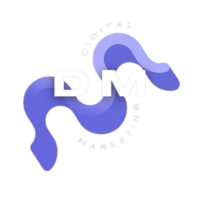Data: The Driving Force in AI Marketing
AI marketing is swiftly changing the face of the digital marketing industry, empowering businesses to use advanced tools and insights for enhanced customer experiences, improved efficiency, and increased revenue. In this SEO-optimized article, we’ll explore the transformative power of AI in digital marketing. To stay current with AI marketing trends, visit the Instagram page @Digital_madeasy.
Data fuels AI marketing, with vast amounts of user-generated information offering valuable insights for crafting personalized, targeted campaigns. AI-based tools streamline data collection, analysis, and interpretation, enabling informed decision-making and bolstering marketing strategies.
Harnessing Machine Learning and Predictive Analytics
Machine learning, an AI subset, allows algorithms to predict outcomes based on data analysis. This technology underpins AI marketing, helping marketers establish predictive models for trend identification, campaign optimization, and resource allocation. Additionally, predictive analytics forecasts customer behavior, ensuring timely, relevant content delivery.
AI Marketing Applications: An In-Depth Look
Content Creation and Enhancement with AI
AI-driven tools aid marketers in generating content tailored to audience preferences. NLP and NLG technologies empower AI algorithms to analyze user data, crafting content that resonates with target audiences. AI can also optimize existing content through suggestions, gap identification, and keyword research for improved search engine ranking.

Chatbots and Virtual Assistants: AI Marketing Game-Changers
AI-operated chatbots and virtual assistants have become essential tools for businesses, providing 24/7 support and personalized customer service. These technologies address diverse tasks, from answering FAQs to guiding users through purchasing processes, boosting customer satisfaction and enabling human resource focus on strategic tasks.
Customer Segmentation and Personalization: AI Marketing's Finest
AI marketing facilitates precise customer segmentation, identifying vital demographics and behaviors. AI-powered tools analyze customer data, generating personalized marketing campaigns for each segment, leading to heightened engagement and conversion rates. Furthermore, AI refines segmentation based on new data, maintaining marketing relevance and effectiveness.
AI in Ad Bidding and Optimization
AI-enabled programmatic advertising revolutionizes ad bidding and optimization processes, allowing data-driven decision-making in real-time. Machine learning algorithms assess ad performance, adjusting bids to optimize ROI and minimize ad spend waste.
The Future of AI Marketing: A Glimpse Ahead
AI technology advancements will expand potential applications in digital marketing, with possibilities including sophisticated NLP, enhanced predictive analytics, and integration with AR and VR platforms. Businesses embracing AI marketing and remaining informed on trends will be well-positioned for success in the competitive digital arena. Stay updated on AI marketing by following @Digital_madeasy on Instagram
Conclusion
AI marketing is undeniably transforming digital marketing, equipping businesses with innovative tools and insights to refine strategies and better serve customers. As AI technology continues to evolve, staying informed and adapting to new trends will be crucial for success. Don’t forget to follow Digital_madeasy on Instagram for the latest in AI marketing.
FAQ's
- What is AI marketing?
AI marketing refers to the integration of artificial intelligence into marketing strategies, leveraging advanced tools and insights to improve customer experience, efficiency, and revenue growth.
- How does AI marketing use machine learning and predictive analytics?
Machine learning allows algorithms to make predictions based on data analysis, while predictive analytics forecasts customer behavior. These technologies help marketers optimize campaigns, allocate resources, and deliver timely content.

Follow me for more
Ask me any questions and I will get back to you in less than 24h.





